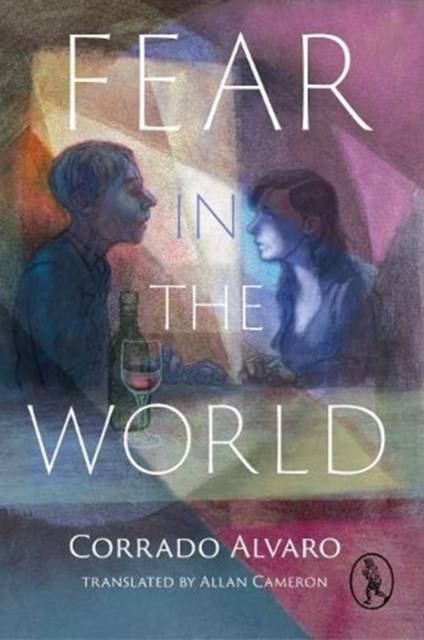
- Retrait gratuit dans votre magasin Club
- 7.000.000 titres dans notre catalogue
- Payer en toute sécurité
- Toujours un magasin près de chez vous
- Retrait gratuit dans votre magasin Club
- 7.000.0000 titres dans notre catalogue
- Payer en toute sécurité
- Toujours un magasin près de chez vous
Description
Corrado Alvaro's Fear in the World was published a decade before Orwell's 1984, but is not well known outside Italy, perhaps because of the timing of the publication just before the Second World War.
Alvaro had visited the Soviet Union as a journalist, but was probably motivated to write this dystopian novel by aspects of modernity that concerned him, particularly the use of fear for political purposes which was not afflicting Russia alone. He was interested in the psychology of fear and the extent to which individuals and the crowd participate in their own regimentation. The names of countries, cities and leading political figures such as Stalin are never referred to, but as in the works of Orwell they are clearly identifiable from their descriptions: the author was writing in a Fascist country against a Fascist censor and had to cut his cloth accordingly.
This is a dark novel, not quite as dark as 1984, but it is more claustrophobic. The feeling of inevitability is there from the first page, and it is experienced as we experience real life. The imagined truth takes us closer to where we really are. The travails of the love affair at the core of this novel quite possibly arise from perceptions that the regime exploits in a quite ad hoc manner. And it leads the reader through an extraordinary sequence of events and observations which encompass a vast range of emotions and ideas expressed in a unique prose style. The modern Leviathan appears to be a well-oiled machine, but towards the end it becomes clear that this is merely an appearance of efficiency and omniscience, but appearances can be powerful.
Alvaro is particularly interested in how the state uses quasireligious mechanisms and rituals to assert its power. The central character returns to the country after a long period abroad, and sees things initially through foreign eyes, living a life similar to the one Alvaro did when in Russia. He is not a natural rebel, and very much wants to fit in, but he finds this difficult to achieve. The regime boasts that it has an ally in history, but destiny is elusive, however much the characters feel that they are driven by it.
Alvaro had visited the Soviet Union as a journalist, but was probably motivated to write this dystopian novel by aspects of modernity that concerned him, particularly the use of fear for political purposes which was not afflicting Russia alone. He was interested in the psychology of fear and the extent to which individuals and the crowd participate in their own regimentation. The names of countries, cities and leading political figures such as Stalin are never referred to, but as in the works of Orwell they are clearly identifiable from their descriptions: the author was writing in a Fascist country against a Fascist censor and had to cut his cloth accordingly.
This is a dark novel, not quite as dark as 1984, but it is more claustrophobic. The feeling of inevitability is there from the first page, and it is experienced as we experience real life. The imagined truth takes us closer to where we really are. The travails of the love affair at the core of this novel quite possibly arise from perceptions that the regime exploits in a quite ad hoc manner. And it leads the reader through an extraordinary sequence of events and observations which encompass a vast range of emotions and ideas expressed in a unique prose style. The modern Leviathan appears to be a well-oiled machine, but towards the end it becomes clear that this is merely an appearance of efficiency and omniscience, but appearances can be powerful.
Alvaro is particularly interested in how the state uses quasireligious mechanisms and rituals to assert its power. The central character returns to the country after a long period abroad, and sees things initially through foreign eyes, living a life similar to the one Alvaro did when in Russia. He is not a natural rebel, and very much wants to fit in, but he finds this difficult to achieve. The regime boasts that it has an ally in history, but destiny is elusive, however much the characters feel that they are driven by it.
Spécifications
Parties prenantes
- Auteur(s) :
- Traducteur(s):
- Editeur:
Contenu
- Nombre de pages :
- 295
- Langue:
- Anglais
Caractéristiques
- EAN:
- 9781908251992
- Date de parution :
- 23-03-21
- Format:
- Livre broché
- Format numérique:
- Trade paperback (VS)
- Dimensions :
- 132 mm x 198 mm
- Poids :
- 317 g

Les avis
Nous publions uniquement les avis qui respectent les conditions requises. Consultez nos conditions pour les avis.






